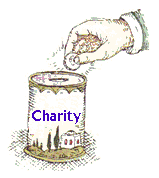
ב''ה
 Subscribe to our
Subscribe to our
The Lubavitcher Rebbe, Rabbi Menachem M. Schneerson, provided the following explanation:*
The lessons of Purim teaches us to spread Judaism amongst the Jewish people. They also teaches us that we must bring goodness, justice, and righteousness to the entire world, including the Gentile nations…
Not only should a Jew behave with total firmness and not allow himself to be intimidated by the Gentile. He should also influence the Gentile to behave in a just, righteous manner, by bringing him to adhere to the Noahide Code. This is highlighted in the narrative of the Megillah [Esther ch. 10]:
After Mordechai was appointed viceroy [of Persia], he strove to promote the well-being of all the inhabitants of the countries under King Achashverosh. He accomplished this for both the Jews and the Gentiles of the one hundred and twenty-seven countries…
Thus, the story of the Megillah holds another lesson. A Jew should exert effort to promote the well-being of all the Gentile nations. He accomplishes this by influencing them to follow the Noahide Code, whose underlying theme is maintaining a civilized world.[1]
[1] This directive is found in the Hebrew Bible in Isaiah 45:18. It reads, “For so said the L-rd, the Creator of Heaven, Who is G-d, Who formed the earth and made it, He established it; He did not create it for a waste, He formed it to be settled [through people acting righteously with one another], ‘I am the L-rd and there is no other.’ ”
*Free translation from Hisvaaduyos 5743, Vol.2, p. 105, as featured in the book “To Perfect the World: The Lubavitcher Rebbe’s Call to Teach the Noahide Code to All Mankind.”